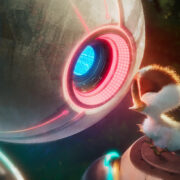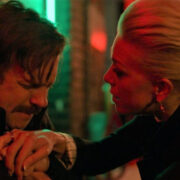How to Become a “Mean Girl”
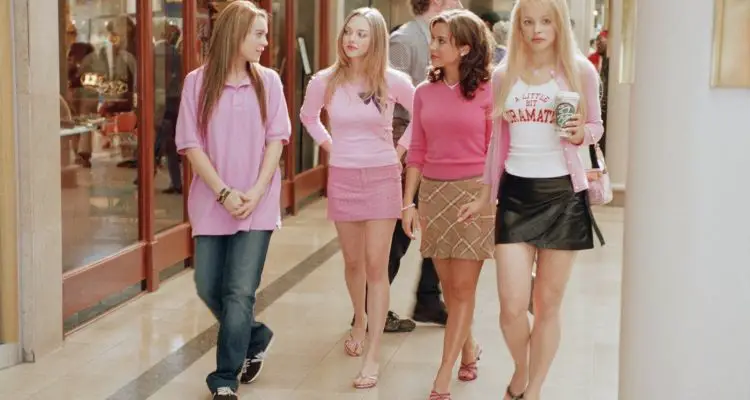
Kim is an editor and contributor for FilmInquiry. As a…
Take a moment to think back to high school. Stereotypical cliques, classes to snore by, and weird teachers are just some of the recollections we all have in common. Mean Girls takes an over-dramatized look into this world from the point of view of a sheltered, home-schooled girl and exaggerates the most common clichés we all remember so fondly.
Mean Girls is a 2004 release directed by Mark Waters. While the film is based primarily on the book Queen Bees and Wannabes by Rosalind Wiseman, the former SNL star, Tina Fey wrote the screenplay. Her own high school experience with all things teenage awkwardness combined with Wiseman’s book created a story and characters that helped drive this movie out of the park and become one of the most quoted movies of all time.
Socially Awkward
We can all relate to the anxiety of the first day of school. But not many people have the experience of being dropped in the middle of their Junior year of high school with absolutely no comprehension of teenage social norms. This is where we encounter the outcast, Cady (pronounced like Katie) Heron, played by pre-rehab Lindsay Lohan. Being thrust into the teenage menagerie of freaks, geeks, jocks, and populars, this movie follows her life-changing year at North Shore.
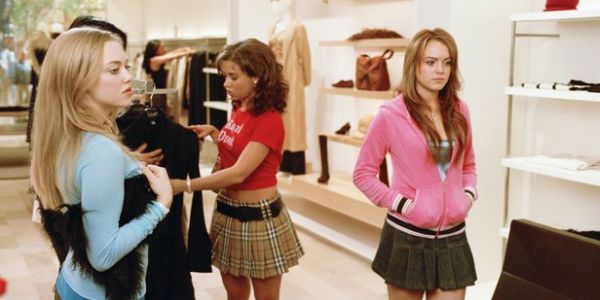
Rachel McAdams plays the perfect Queen Bee character, Regina George. Her first appearance in the movie is being carried on to the field by a group of beefy men. The look on Cady’s face insinuates pure fascination with this kind of behavior, inspiring her connection with the “mean girls” later on. While most other girls see Regina as an intimidating plastic bitch, Cady sees her as her own personal Barbie doll that she can manipulate. Cady begins acting and dressing like the “Plastics” – monkey see, monkey do – and becomes Queen Bee herself once she takes Regina out of the most-popular-girl role.
The Development of a Mean Girl
How did she go from naïve to native so quickly? Foremost because the pretty, popular girls depict dominance in the teenage schema. Living in an African civilization with her family, Cady learned that only the strong survive – she took note of the language, “So fetch,” the mannerisms, “On Wednesdays we wear pink,” and observations.
Regina to female student: “Oh my god I love your skirt. Where did you get it?”
Regina to Cady after the girl walks away: “That is the ugliest f-ing skirt I’ve ever seen.”
Picking up on these attitudes as she studied them, she adapted to her surrounding and let them consume her before she could come up for air.
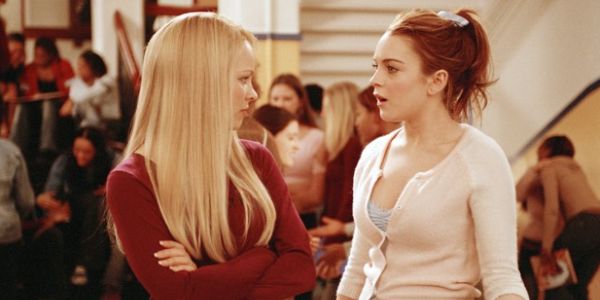
How do real girls become “mean girls?” As the movie suggests, it could be their upbringing and the fact that they’re allowed to do pretty much whatever they want. No curfew and very few meaningful conversations in the home. In Cady’s case, her parents don’t fully take notice that she’s changing until it’s too late. Her parents are still learning the ins and outs of being the parents of a teenager. An example of this is when she is grounded and her dad asks, “Are they allowed to leave the house when they’re grounded?” I think this is a very real scenario for many families. Regina’s mom is another case where there is little notice of what happens in her children’s lives. She is also an enabler, offering Regina a condom when she’s making out with her boyfriend, and letting her younger daughter dance along to the raunchy “Milkshake” song playing on t.v.
Another theory could be that they are unhappy with their current social situations. Gretchen Weiners’ character thrives off the approval of others, especially if it brings popularity and admiration to her. It’s mentioned that her father invented Toaster Strudel, which suggests that she is from a well-off family. Furthermore, perhaps she is unhappy and unappreciated at home. We don’t even get a glimpse of her family outside of the fact they have a working phone.
What Goes Around Comes Around For The Mean Girl
By the time Cady realizes, her lies and ego have built up to a tremendous climax and she has nowhere to go but watch as her life comes crashing down. This is where the movie gets good with some girl drama! One of my favorite scenes is when Regina, in a huff, confronts Cady:
Regina: “Do you know what everyone says about you behind your back? Hmm? They say that you’re a homeschooled jungle freak that’s a less hot version of me! Yeah, so don’t try to act so innocent! You can take that fake apology, and shove it right up your hairy c…”
Aaaaaand she proceeds to get hit by a bus – karma coming back to bite her. At least Cady tried to apologize, right?

This freak accident could be what inspired Cady to make amends with all the people she mistreated at the end. By handing out pieces of the Prom Queen tiara, she metaphorically exhibits the old cliché that true beauty comes from within. As a close to this testament, Cady’s internal voice tells us, “Finally, Girl World was at peace; if any freshmen tried to disturb that peace, well, let’s just say we knew how to take care of it.” (Imagines junior Plastics being hit by a bus.)
Mean Girls in Real Life
My question then is what happens to these “mean girls” in real life?
I went to an all-girls Catholic high school and while I never personally noticed bullying, I know they existed. Cliques exist in all social situations, and we were no exception – I just happened to sit in a group which minded its own business. But what happens when these bullies and bitches grow up? Do they go on living normal lives and continue to victimize people without punishment? Or do they finally see the error in their ways and change?
I’d love to hear some of your experiences and input on this topic – let’s chat in the comments!
If you enjoyed this article, I’d appreciate it if you’d share it with your friends, family and other online camarades! Thanks!
Does content like this matter to you?
Become a Member and support film journalism. Unlock access to all of Film Inquiry`s great articles. Join a community of like-minded readers who are passionate about cinema - get access to our private members Network, give back to independent filmmakers, and more.
Kim is an editor and contributor for FilmInquiry. As a movie nerd from Buffalo, NY, her passion for film and t.v. motivates her enjoyment of reading and writing. She hopes to polish her style and publish original, thought-provoking articles about some of her favorite and not-so-favorite films. Thanks for reading!


